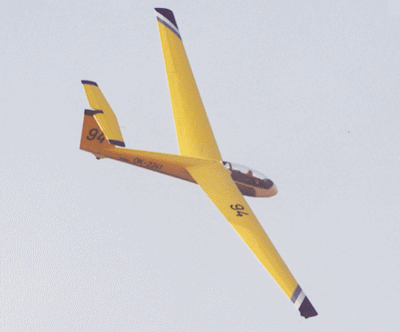Fri, Oct 05, 2012
Addition To CAP Soaring Fleet Comes As Glider Program Celebrates Banner Year Of 10,000-Plus Flights
Twelve TG-10B (L-23 Super Blanik) gliders from the U.S. Air Force Academy in Colorado Springs now belong to Civil Air Patrol. The recent Air Force transfer of the aircraft to CAP is a boost to the Air Force auxiliary’s glider program. It will allow the Air Force auxiliary to replace some of its older gliders and help modernize its existing fleet of 42 gliders.

Ten of the Air Force Academy gliders will be used to upgrade the CAP soaring fleet, but two others not considered airworthy will be stored to supply parts for those that are in use. Eight of the gliders also come equipped with trailers to be used for storage and transportation. “This comes at a great time,” said Col. Mike Murrell, CAP’s national deputy chief of staff for operations. “The transfer gives us the opportunity to both upgrade the glider fleet and enhance the overall program, which – thanks to the efforts of a lot of dedicated glider and cadet program volunteers – just celebrated its most successful year in recent memory.”
In fiscal year 2012, CAP flew 10,249 glider sorties (mostly cadet orientation and training flights) – more than any year since 2005 when CAP began tracking glider flights online. “Having these Air Force Academy gliders in CAP’s air fleet will help us provide youth with even more flights in the coming year,” said Murrell. “This is an exciting development, sure to enhance our cadet recruiting and retention efforts.”
A conventional two-place tandem, basic training sailplane, the TG-10B is one of the world’s most common soaring trainers. It has been used by the Air Force Academy for a number of years to introduce its cadets to flight.
Like the Air Force Academy, CAP uses its gliders to introduce America’s youth to flight through its cadet orientation program. The opportunity to fly is a major attraction for cadets; almost 32,000 orientation flights were provided in CAP’s gliders and powered aircraft over the past year.
In addition to its cadet orientation flights, CAP offers three national glider academies and a number of region and wing glider encampments each summer at different locations throughout the U.S. The glider academies and encampments are specifically designed for cadets who want to learn to fly. Participants receive formal ground instruction and cockpit time with a certified flight instructor, and some participants get the opportunity to solo.
(Photo provided by CAP)
More News
Ground Stop (GS) The GS is a process that requires aircraft that meet a specific criteria to remain on the ground. The criteria may be airport specific, airspace specific, or equip>[...]
Aero Linx: Australian Transport Safety Bureau (ATSB) The Australian Transport Safety Bureau (ATSB) improves safety and public confidence in aviation, marine and rail transport thro>[...]
“The Palo Alto stopover confirmed—yet again—that flight schools and aero-clubs are no longer just curious about electric training; they are ready to buy. In just >[...]
Pilot’s Failure To Maintain Clearance From The Water While Flying At A Low Altitude Analysis: The flight of two airplanes was in cruise flight on a north heading about 50 ft >[...]
Also: 48th Annual Air Race Classic, Hot Air Balloon Fire, FAA v Banning 100LL, Complete Remote Pilot The news Piper PA-18 Super Cub owners have been waiting for has finally arrived>[...]
 ANN's Daily Aero-Term (06.30.25): Ground Stop (GS)
ANN's Daily Aero-Term (06.30.25): Ground Stop (GS) ANN's Daily Aero-Linx (06.30.25)
ANN's Daily Aero-Linx (06.30.25) Aero-News: Quote of the Day (06.30.25)
Aero-News: Quote of the Day (06.30.25) NTSB Final Report: ICON A5
NTSB Final Report: ICON A5 Airborne Affordable Flyers 06.26.25: PA18 Upgrades, Delta Force, Rhinebeck
Airborne Affordable Flyers 06.26.25: PA18 Upgrades, Delta Force, Rhinebeck



